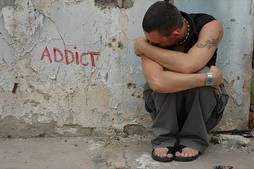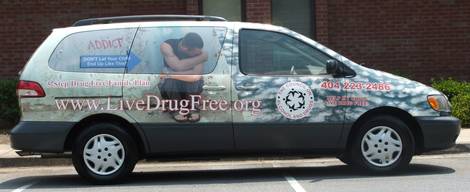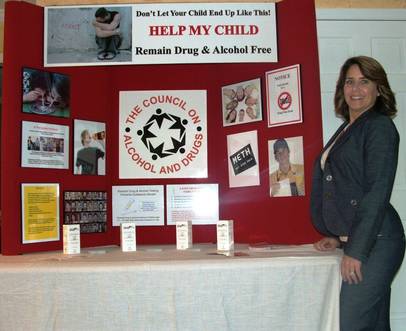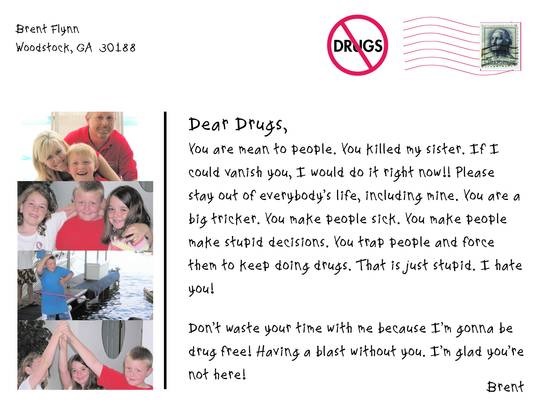- 45 East Deloney Avenue PO Box 1552
- (+061) 307-733-3005

Dear Parent, "Not MY Child!"
Here’s How To Help Keep It That Way
Let’s face it: everyday, your children and mine have to navigate a tough world. Much tougher than the one you and I had to make our way in.
They have pressures we never could have dreamed of at their age.
As parents, we do everything we can to shield our kids from danger. Maybe you’ve chosen to send your kids to a better school, or even tried to help them choose friends that will be good influences.
But no matter what you do, you can’t guarantee your child will never be exposed to illegal drugs or alcohol. As parents, we don’t want to admit it, but the cold hard numbers don’t lie:
By the time they’re 17, 70% of kids say they’ve been offered illegal drugs, according to yearly surveys conducted by Columbia University.
That includes kids at “good” schools. And kids who’ve been sheltered from bad influences.
That includes your kids and mine.
Click here to continue reading the full Letter to Parents.
We all want to say “Not My Child!” And if we take action now, we can make sure that statement remains true.
I wish your family the best.
Sincerely,
Chuck Wade
Executive Director
The Council On Alcohol And Drugs
Don’t wait until there’s a breakdown. Scroll down for free downloadable materials.

Won’t drug testing make my child feel like I don’t trust him?
That’s much less likely if you approach the subject in the right way. Start the conversation by telling him you know he’s going to face this pressure sooner or later, and that you remember how uncomfortable it can be to resist peer pressure. Then say you’ve found a way to help him. Explain how this lets him make you the “bad guy,” and just gives him an easier way out of the situation if he needs it.
And be sure and tell him that you’re not the slightest bit concerned any of the tests will ever come back positive. This is just your way of giving him some extra strength and support in difficult situations.
Isn’t drug testing an invasion of my child’s privacy?
Let’s face it: kids this age are just starting to assert their independence. Some balk when you try to help with homework, some pitch a fit if you even ask if homework has been done! So it’s possible that your child may accuse you of invading his privacy by drug testing him.
There are several important things to remember, and to remind your child, regarding this question:
1. You are the parent. It’s your responsibility to keep your child safe. You feed him, clothe him and provide all the things he needs. This gives you the right and the responsibility to know what he’s doing.
2. You’re the one that will have to pay any medical or legal bills that will result from any drug use on his part.
And of course, you’re not doing this because you expect him to ever test positive. You’re doing this solely to help him resist difficult pressure.
I had my own experiments or problems with drugs as a teen. How do I tell my kids not to do something I did? Won’t they say I’m being a hypocrite?
Not if you are open and honest with your child. In fact, you probably know better than anyone why they should stay away from drugs and alcohol. As you explain the dangers to your children, tell them that you understand the pressure they’ll be under because you felt it too. And that you gave in, and wish you hadn’t.
Let them benefit from your experience, and maybe they won’t need to learn the hard way from their own.
When should I test my child?
Many parents choose to drug test their child at least once each month on a random, unannounced basis, from age 13 to age 18. This helps to ensure that your child does not become complacent about the tests, and that your testing program is taken seriously. (These are the same reasons that employers choose to randomly test their employees on a regular basis). Random testing puts “teeth” in your home drug testing program!
What do I do if my child tests positive?
First of all, don’t panic! Drug tests are just an initial test – it is possible to get a false positive result. The last thing you want to do is have a confrontation with your child, only to find out on further testing that the results were a mistake.
Any time you have a preliminary positive result, the test should be sent to a lab for confirmation.
But first, calmly show your child the results of the test and ask him what he thinks about the results. Tell him you’ll be sending the test to a lab to have it confirmed. In most cases, when confronted with a positive test result, the child will confess if actual drug use has occurred, and further testing isn’t necessary.
What if my child has taken an over-the-counter or prescription drug? Could that cause a preliminary positive result?
Yes! If the confirmation test is positive, an MRO (Medical Review Officer) will contact you to discuss the possible causes of the positive test.
Remember, the primary purpose of the drug test kit is as a PREVENTION tool. We believe that the potential of being tested, along with your good parenting skills will be enough of a deterrent to help your child decide to remain drug and alcohol free. The majority of tests are negative, and therefore do not need confirmation or MRO services. Again, it is the threat of the test that makes this an excellent prevention tool.
How long do specific drugs stay in a person’s system?
There are many variables. The average length of time for common street drugs is two-to-three days. The average window of detection for marijuana is about 12 hours using saliva-based test kits, so testing should usually take place at a minimum on weekend mornings and the morning after school holidays.
If it is determined that the test is positive because of illegal drug use, what do I do next?
We can provide you with a list of treatment and counseling centers in your area (free of charge) and free access to our online counseling resource center. In the case of a positive test, The Council on Alcohol and Drugs recommends that you seek qualified medical treatment and/or counseling services for your child and your family.
Do I Really Need To Drug Test My Child?
I hear this question all the time from parents. Nearly all of them are good parents who’ve done everything they can to protect their children. And so they have a hard time believing that something so ugly as drug or alcohol abuse could ever be an issue in their families.
I have a lot of sympathy for parents like these because I used to be just like them.
I, too, did everything I knew to protect my children – and now, I do even more for the two who are still at home.
But it’s my oldest son who I’d like to tell you about. You see, we made sure he grew up in a nice neighborhood. He went to a good school and liked going to church. In fact, if for some reason I hadn’t taken him to church he would have found a ride with someone else – he just loved it that much.
So I never would have dreamed that drugs could touch him in this environment.
Today, my son is 25 , and I haven’t heard from him in over two years. I don’t know where he is. I have no idea if he is alive or dead.
I know now that when he was only 13 – right in the middle of our nice, safe neighborhood – one of the neighbor kids introduced him to marijuana. They started smoking it together nearly every day right at the end of our street.
If I had been randomly drug testing my son, or if we had the Family Policy against drugs that The Council on Alcohol and Drugs recommends, my son might never have taken the first hit. If he had, I would have found out about it in time to help him.
Instead, I lie awake at night and pray that he’s OK, and that someday he’ll find his way home.
So do you really need to drug test your children? Well, I can’t make that decision for you. But I can tell you that I drug test mine – even though they saw what drugs did to their stepbrother – and hate drugs with a passion.
Because I’m not taking any chances. And I hope you won’t, either.
Chuck Wade

The Ever-Present Potential of Drug and Alcohol Testing Empowers Your Child to Resist Peer Pressure to Use Drugs and Alcohol.
Parents know their children better than anyone else. A parent knows that if a child can tell his or her friends “My parents drug test me” it makes it much easier for the child to resist pressure to use. As parents we don’t need university studies to tell us this. It’s common sense! If there is any doubt, just ask your child!
The simple truth is - the potential for drug testing helps kids make the right decisions – to not use drugs and alcohol!
Some “experts” claim that drug testing may be “perceived by adolescents as invasive and a violation of their rights, potentially damaging the parent-child relationship,” but do you know what is much more damaging to a parent-child relationship? A drug addicted or alcoholic child! Don’t risk this happening to your child. Parents have a right and a duty to protect their children.
Take a quiz to find out if your child is at risk for drug use: CLICK HERE
Should I Drug Test My Child?
Drug testing helps children maintain self-control. Drug testing sets limits, and identifies problem behavior early. The earlier that drug use is recognized, the better the chance of stopping the abuse and avoiding addiction.
The adolescent brain does not fully develop until age 20 or 21. The frontal cortex (the part of the brain that regulates behavior) is not fully developed in the teenage brain. The adolescent brain operates on the limbic system, the part of the brain that encourages risk-taking behavior. As parents we must serve as the frontal cortex for our children until their brains fully develop. Drug testing our children helps them to control their own behavior.
Yelling and screaming at a child only makes matters worse. Teens who are yelled at only learn to yell at others. Screaming at, and threatening your teen only works for a short while. Pretty soon, the child will begin using again.
Teenagers are not young adults, they are just big children. Children need to know that the adult is still in charge. Yelling, screaming and threatening will only make a child rebel even more. Performed fairly and consistently - as part of a family policy - drug testing teaches a child to respect the adult. Drug testing allows the parent to treat the child with respect and lets the parent have some control.
Strict, harsh discipline may make a child behave, but only when you are around to watch him. Drug testing helps the child control his own behavior, even when you are not around.
Associated Press Article: Teen use of pot can lead to dependency, mental illness.
Drug Testing Empowers Parents!
Drug testing is an important tool for parents who want to prevent and prevent drug addiction.
Drug testing empowers parents to take responsibility for preventing their child from beginning drug use and to intervene when their child is making very poor decisions. This increased monitoring of the child means that parents are no longer totally dependent on just hoping and praying that their child will not begin to use drugs or alcohol.
Drug testing enables parents to take a more proactive role in preventing their children's illegal drug use.
Be Careful When Ordering Drug Testing Kits Online!
Anyone can claim anything and characterize themselves in any way they wish with no editorial or publication policy or professional standards to restrict what they can say on a Web site. This has allowed poorly designed drug testing programs to develop slick marketing Web pages that can misrepresent the quality of information while not being accountable to anyone. Don’t equate polished advertising with quality drug prevention programming. Just because the person on the phone or from a website is smooth and understanding, it does not mean that he or she has a parents’ or child’s best interests in mind.
The Council on Alcohol and Drugs is a nonprofit drug and alcohol prevention agency with more than 40 years of experience providing drug prevention programs to parents, schools, businesses and communities.

Brent's sister, Christi Nowak, died as a result of drugs and the lack of a simple 9-1-1 call that could have saved her life while overdosing.
For Christi's final pictures, please CLICK HERE.
For the free booklet "How to Talk to Your Kids about Drugs," CLICK HERE.
For Spanish version, CLICK HERE.
To take a quiz to find out if your child is at risk for drug use, CLICK HERE.
For the 16 drug prevention principles, CLICK HERE.
For a free fill-in-the-blank Family Policy, CLICK HERE.*
*Please note that you are required to enter your valid email address in order to download free materials. We will not sell or share your email address with anyone.
For a free customizable Parent/Child Contract, CLICK HERE.**
**Please note that you are required to enter your valid email address in order to download free materials. We will not sell or share your email address with anyone.
Take a quiz to find out if your child is at risk for drug use, CLICK HERE.
For information on marijuana, CLICK HERE.